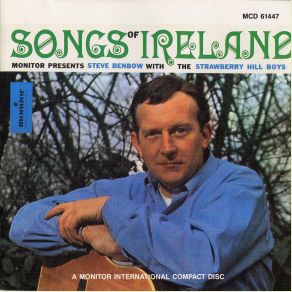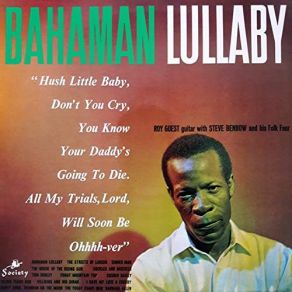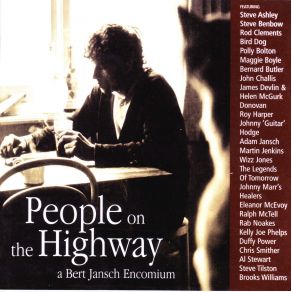Steve Benbow
Wikimp3 information about the music of Steve Benbow. On our website we have 3 albums and 1 collections of artist Steve Benbow. You can find useful information and download songs of this artist. We also know that Steve Benbow represents Songwriter/Lyricist genres.
Biography
[Edit]Though never winning the notoriety or acclaim of contemporaries like Bert Jansch or Martin Carthy, scholars cite Steve Benbow as Britain's first folk guitarist and, by extension, the figure most pivotal in vaulting the instrument to the forefront of the U.K. roots music revival. Born in London on November 29, 1931, Benbow spent much of his adolescence in the Surrey area. Fluent in French, German, and Arabic, he originally planned for a life in animal husbandry, and in 1950 joined the Royal Army Veterinary Corps. Stationed as a rough rider in Egypt, Benbow doubled as an Arabic interpreter. He nevertheless grew bored and purchased a guitar, quickly developing into a player of sufficient skill to perform a set of Latin American instrumentals on Forces Radio in 1953. Upon his 1955 discharge he settled in London and joined Dave Kier's Jazz Band, the first in a series of traditional jazz gigs that earned him the attention of the local music cognoscenti. In time Benbow befriended playwright and singer Ewan MacColl, who in 1957 invited the guitarist to appear on his LP Bold Sportsmen All. Via songs like "Gaelic Football," Benbow effectively established the sound and technique that would come to define British folk guitar. That same year he performed at Moscow's International Youth Festival, and on returning to London formed the Steve Benbow Folk Four, a group that regularly appeared the Greek Street club the Cellar. By the end of 1957, Benbow issued two LPs — Steve Benbow Sings American Folk Songs and Steve Benbow Sings English Folk Songs — while maintaining a frenetic live schedule that included a regular stint accompanying MacColl and Bert Lloyd at their club Ballads and Blues. Another key collaborator was playwright and folksinger Dominic Behan, whom he backed on 1960's landmark album The Irish Rover.
By the early '60s, Benbow was a fixture of British radio, regularly appearing on programs like Guitar Club and Saturday Skiffle Club. For a time he also hosted his own Scottish television series, Plectrum, and served as the resident guitarist on comedian Spike Milligan's Muses with Milligan. With 1966's Songs of Ireland, Benbow established ties with a new generation of British folkies, recording the album with the Strawberry Hill Boys (later known as the Strawbs). His contemporaries and direct descendants also celebrated his profound influence, and in his liner notes to 1967's After Hours, the great Davy Graham writes that Benbow "taught me some of my earliest chords." In 1969 he renewed his collaboration with Behan when both worked on Christy Moore's debut LP, Paddy on the Road. Benbow continued recording and touring on a regular basis until 1977, when in the wake of the album Steve Benbow Sings Irish and Other Songs he curtailed his musical efforts to devote more time to his Hanwell farm. He nevertheless continued performing, and in 1988 launched a twice-weekly residency at Brentford's Brewery Tap that would span close to two decades. As the folk music of his generation enjoyed renewed popularity, Benbow's classic recordings found new critical favor, and in 2000 he contributed "Love Is Teasing" to People on the Highway, a Bert Jansch tribute LP with performances by fellow British folk legends including Wizz Jones and Ralph McTell. In 2003, Benbow also issued his own acclaimed comeback LP, Don't Monkey with My Gun. He suffered a fatal heart attack on November 17, 2006, less than two weeks shy of his 75th birthday.
Collections
Title: People On The Highway
Genre: Songwriter/Lyricist



